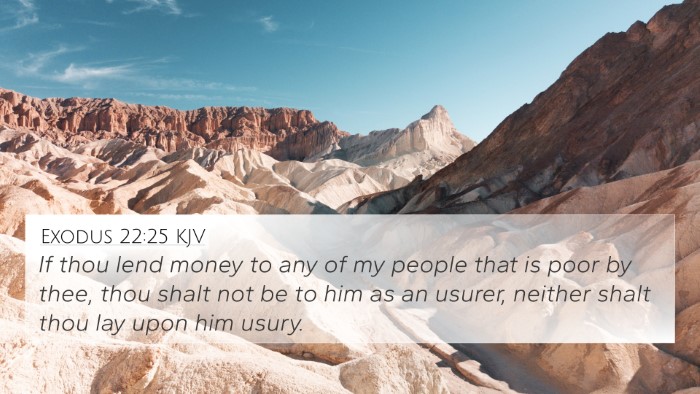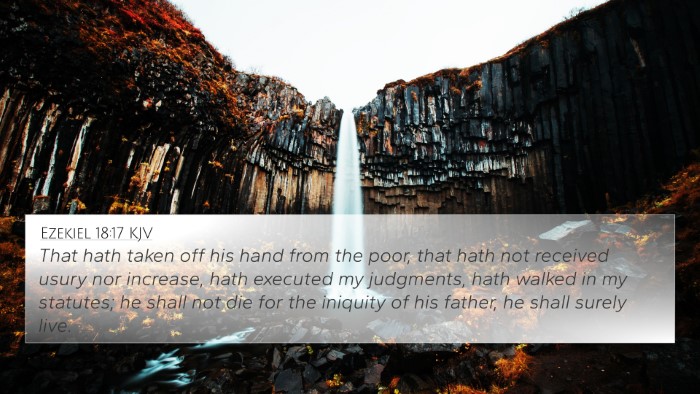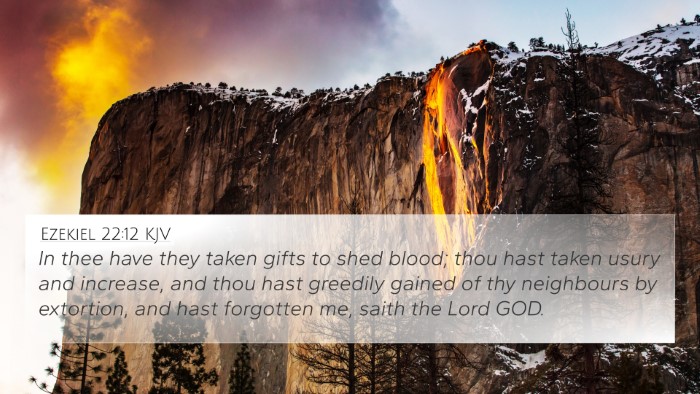Understanding Leviticus 25:36
Leviticus 25:36 states: "Take no interest from him or profit, but fear your God; that your brother may live beside you." This verse emphasizes the moral responsibility that individuals have toward others, particularly within the community of believers.
Verse Summary
This passage is part of God's legislation concerning social justice and ethical behavior. It addresses the importance of treating fellow Israelites with dignity and respect, especially in matters of financial dealings.
Commentary Insights
-
Matthew Henry's Commentary:
Matthew Henry highlights the ethical implications of lending practices among God's people. He emphasizes that the act of lending should not be driven by greed or the desire for profit, but rather by a sense of community and brotherhood.
-
Albert Barnes' Notes:
Barnes elaborates on the significance of God's command for His people to avoid charging interest on loans to their fellow Israelites. This command served to protect the welfare of the community and prevent the exploitation of the poor.
-
Adam Clarke's Commentary:
Clarke points out that this verse not only reinforces the ethical treatment of one another but also underscores the importance of fearing God. This fear is not about being afraid but involves reverence and respect for God's commandments.
Thematic Connections
This verse connects with several important themes in Scripture, including:
- Justice and Compassion: The biblical call for justice is evident in other parts of the Old Testament, such as Exodus 22:25, where God instructs against lending at interest to the poor.
- Community Support: The principle of helping those in need is echoed in Deuteronomy 15:7-11, urging generosity towards the less fortunate.
- God's Sovereignty: In Psalm 37:26, it is noted that the righteous are generous and lend freely, reflecting God's character.
- New Testament Parallels: Jesus emphasizes similar principles in Matthew 5:42, encouraging believers to give to those who ask of them.
Cross-Referencing Biblical Texts
Below are cross-references that provide further insight into Leviticus 25:36:
- Exodus 22:25 - Prohibits charging interest on loans to the poor.
- Deuteronomy 15:7-11 - Encourages generosity toward the needy.
- Proverbs 28:8 - Warns against exploitation of the poor through usury.
- Matthew 5:42 - Teaches the principle of giving and not turning away from those who ask.
- Luke 6:34-35 - Encourages lending without expecting repayment.
- Romans 13:8 - Advises not to owe anyone anything except love.
- James 2:15-16 - Illustrates the moral obligation to help those in need.
- 1 John 3:17 - Challenges believers on the responsibility toward those in need.
How to Use Bible Cross-References
For effective Bible study, utilizing a Bible concordance or Bible cross-reference guide can help identify and explore the connections between verses. To find cross-references, consider:
- Utilizing tools and resources designed for cross-referencing Bible texts.
- Identifying themes that recur throughout both the Old and New Testaments.
- Engaging in Bible cross-reference study methods to deepen understanding.
- Incorporating scriptural parallels within personal or group Bible studies.
Conclusion
Leviticus 25:36 serves as a vital reminder of the ethical standards that God expects from His people. The call to lend without profit not only reflects God's character but also nurtures the love and support that should exist among the community. Engaging deeply with Scriptural cross-references enriches our understanding of such teachings and their application in our lives.













